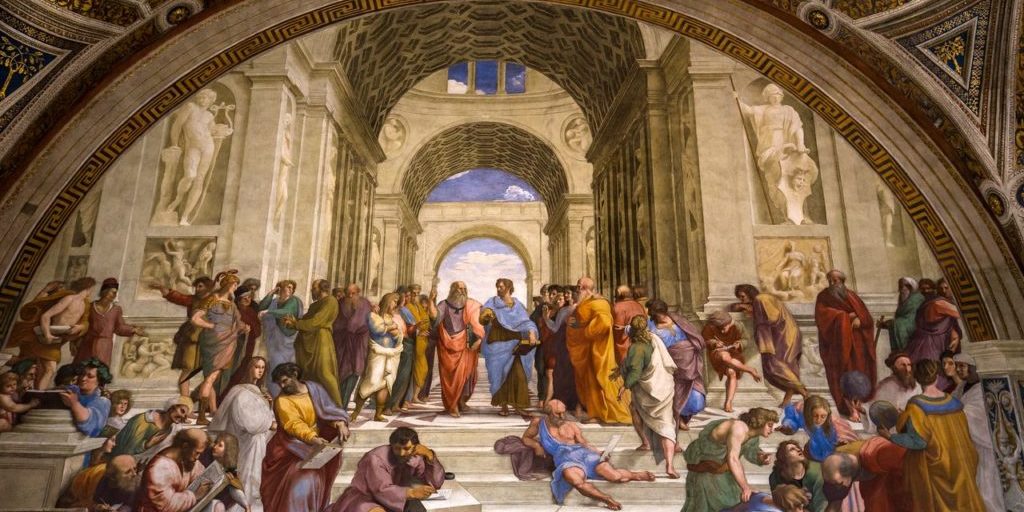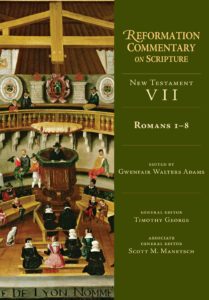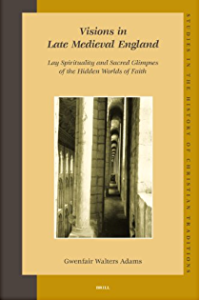
Credo Fellow Highlight: Gwenfair Walters Adams
Credo is Latin for “I believe.” From the creeds of the Church Fathers to the confessions of the Reformation, Christians have been faithful to confess the faith once for all delivered to the saints. Credo retrieves this classical and reformational heritage in order to create and cultivate theological renewal today. By bridging the gap between church and academy, Credo helps churchgoers, pastors, and students alike learn theology and retrieve orthodoxy for the sake of Christian fidelity today.
However, a team effort is required if the church and academy alike are to remain faithful to this orthodox faith, a team that spans denominations and brings together some of today’s most outstanding theologians, pastors, and writers. I am pleased to welcome the Credo Fellows, each of which embodies the spirit of Credo in their own teaching and writing ministries. Each week, we are highlighting one of the new fellows, allowing you to hear more about their passions, from the halls of patristic and medieval history to the corridors of dogmatics and classical literature.
Matthew Barrett, executive editor

Gwenfair Walters Adams (Ph.D., University of Cambridge) is Professor of Church History, Chair of the Division of Christian Thought, and Director of the M.A. of Spiritual Formation at Gordon Conwell Theological Seminary. Dr. Adams’ specialties in Church History are focused on Medieval and Reformation studies. She has a special interest in the historical arc from late medieval Catholic England through the Reformation to Puritan New England. She has additional research interests on the impact of monasticism on Reformation spirituality; C. S. Lewis and mythology; the shaping power of story on theology; and the history of the expression of the gospel.
As the Director of the Master of Arts in Spiritual Formation, Dr. Adams teaches courses in the history and practice of Christian spirituality. Her interests are focused in the history of worship and the arts in the church. She is also the designer of LifeStory Exegesis™ (Story Spirituality™)—a model of spirituality that can be used in spiritual formation, direction, discipleship and counseling. Bringing together theology, historiography, and literary theory, it engages the structure of the Creation-Redemption meta-narrative to provide a framework that shapes the understanding and effective living of one’s life.
A life-long Presbyterian, she is married to D. Kevin Adams, the senior pastor of East Baptist Church in Lynn, MA.
Books
 Romans 1-8 (Reformation Commentary on Scripture: Vol. 7) (IVP, 2019)
Romans 1-8 (Reformation Commentary on Scripture: Vol. 7) (IVP, 2019)
“If we have been united with him in a death like his, we shall certainly be united with him in a resurrection like his.” (Rom. 6:5) With its themes of grace, sin, justification, and salvation through Christ alone, Paul’s letter to the early church in Rome has been a primary focus of Christian reflection throughout church history. Sixteenth-century reformer Martin Luther reflected the church’s longstanding emphasis on this portion of the canon: “This letter is truly the most important piece in the New Testament. It is purest Gospel. . . . It is impossible to read or to meditate on this letter too much or too well. The more one deals with it, the more precious it becomes and the better it tastes.” In this volume of the Reformation Commentary on Scripture, church historian Gwenfair Adams guides readers through a diversity of early modern commentary on the first eight chapters of Paul’s epistle to the Romans. Readers will hear from familiar voices as well as discover lesser-known figures, from a variety of theological traditions including Lutherans, Reformed, Radicals, Anglicans, and Roman Catholics. Drawing upon a wide range of resources―including commentaries, sermons, treatises, and confessions―much of which appears here for the first time in English, this volume provides resources for contemporary preachers, enables scholars to better understand the depth and breadth of Reformation commentary, and seeks to help all those who desire to be united with Christ.
 Visions in Late Medieval England: Lay Spirituality and Sacred Glimpses of the Hidden Worlds of Faith (E.J. Brill, 2007)
Visions in Late Medieval England: Lay Spirituality and Sacred Glimpses of the Hidden Worlds of Faith (E.J. Brill, 2007)
Visions were highly popular in the late Middle Ages, whether preached as vivid stories from the pulpit, illuminated in saint-filled manuscripts, or experienced during the breathless anticipation of a Mass or eerie darkness of a Yorkshire graveyard. This volume is the first to map out the wide range of vision types in late medieval English lay piety. Analyzing 1000 visionary accounts gathered from sermon and exempla collections, religious devotional works, saints’ legends, and lay stories, it explores five central dynamics of spirituality that visions shaped and sustained: Transactions of Satisfaction (visits to and from purgatory and hell), Reciprocated Devotion (visitations of the saints), Spiritual Warfare (attacks by demons), Supra-Sacramental Sight (Mass and Passion sightings), and Mediated Revelation (prophetic visions).

